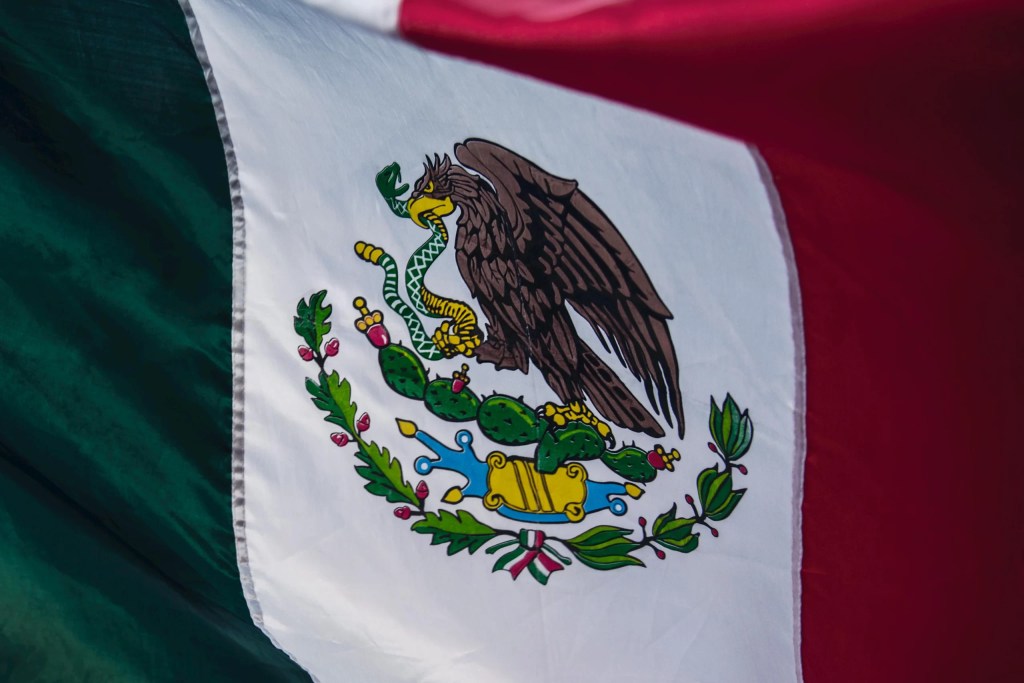
This article is apart of our weekly series associated with the The Global Subsidiary Index. The series is designed to help businesses identify the best countries for establishing a subsidiary based on key operational factors. GEOS provides a data-driven ranking of jurisdictions worldwide, assessing across 40+ criteria to bring you insights into global expansion opportunities.
Each country on the index is scored on an overall score out of 100, with each individual criterion out of 5 or 10. Higher scores indicate a more favorable environment for businesses. By leveraging these insights, companies can make informed decisions on where to establish a legal presence.
Mexico has quietly become one of the smartest places to grow a global team, especially if you’re in tech. Its growing pool of skilled talent, strong ties to the U.S., and natural time zone alignment make it a top choice for companies that want to scale quickly without compromising on quality.
With over 130,000 computer science graduates each year, a decades-long relationship with Silicon Valley, and a rising number of tech startups and unicorns, Mexico is well-positioned to power the next wave of digital growth. For companies looking to do business in Mexico, the combination of talent and regional access makes it a strong move.
At GEOS, we see this shift happening in real time. Companies are thinking beyond borders, looking for the right combination of speed, talent, and stability, and they’re finding it in Mexico. In this guide, we’ll walk through the key steps for setting up your business south of the border, from incorporation to compliance.
Why Should You Expand to Mexico?
When you start a business in Mexico, you gain access to a large, skilled workforce, competitive labor costs, and close proximity to the U.S., all while operating in a country that welcomes foreign investment.
Foreign entrepreneurs can also benefit from Mexico’s growing startup scene, skilled talent, and wide range of opportunities for setting up a business.
The first platform dedicated to streamlining entity setup and management.
Strategic Access and Significant Market Potential
Mexico scores well on market size and economic access. With over 128 million people and a $1.8 trillion economy, it offers significant growth potential.
Before starting a business, conducting market research is crucial to understand the Mexican market environment and consumer demand.
The Population Score of 4/5 highlights strong demand, and a GDP per capita score of 6/10 reflects a growing consumer base. Growth has stayed steady despite global challenges. GDP rose 4.7% in 2021, dipped to 3.1% in 2022, and is expected to settle around 1.2% in 2025.
U.S.–Mexico Trade Ties Drive Opportunity
Trade with the U.S. is a key part of Mexico’s strength. In 2022, total trade reached $863.4 billion, making Mexico the second-largest trading partner of the U.S. Exports and imports span vehicles, machinery, electronics, and agricultural goods.
Over 30 U.S. states rely on Mexico as a top-three export destination. These connections create steady demand and integrated supply chains.
Nearshoring and Foreign Investment Are Fueling Growth
Mexico is a top destination for nearshoring. U.S. companies are investing in manufacturing, infrastructure, and logistics, looking to cut shipping times and costs.
Foreign investments in Mexico are subject to specific regulatory requirements and registration processes, with a legal framework in place that facilitates foreign participation in the Mexican market.
The government supports this shift through Plan México, which aims to boost local content in exports, and tax incentives for foreign and tech companies valid through 2030. Rail expansion and clean energy development are also in focus.
Foreign investors in Mexico benefit from clear rules, simpler legal steps, and flexible options for setting up different types of companies. That makes it easier for outsiders to do business in Mexico and build long-term operations.
Compared to many other countries, Mexico is more cost-effective and offers strong investment potential. It’s a smart choice for businesses looking to expand beyond their home markets.
Mexico’s Trade Agreements Open Global Access
Mexico is part of 13 free trade agreements, including the CPTPP, giving companies access to 50 markets. The USMCA, which replaced NAFTA, makes trade with the U.S. and Canada smoother. It improves customs, strengthens labor protections, and includes rules for digital trade and IP. For U.S. companies, this makes cross-border operations easier and more predictable.
Risks of Doing Business in Mexico
Mexico carries moderate political and operational risk. The Political Risk Score of 2/5 reflects concerns around regulatory consistency, contract enforcement, and localized security issues.
Heavy dependence on the U.S., which buys 30% of Mexico’s GDP, adds exposure. The 2026 USMCA review could bring policy changes that impact key industries.
Certain economic activities and industries in Mexico are legally reserved for Mexican citizens, limiting foreign participation as outlined in Mexican law. Understanding Mexican laws is crucial for foreign investors to navigate the regulatory environment and ensure compliance with all legal requirements.
Mexico remains a smart option for global companies. It offers size, proximity, and trade advantages. But risks around regulation, security, and U.S. trade policy mean businesses need a clear strategy. Those who prepare can tap into long-term opportunities in one of the most important markets in the Americas.

Competitive Tax & Business Environment
Mexico offers a mix of opportunities and challenges. The corporate tax rate is fairly competitive, but foreign companies can face hurdles with licensing and ownership rules.
Mexico uses a civil law system based on Roman and French legal traditions. The Mexican legal system is rooted in Civil Law, which shapes the formal and procedural requirements for business formation, compliance, and the establishment of business entities.
It’s different from the common law system used in the U.S., which affects how legal processes work, especially when it comes to things like notaries and business formation. Mexican corporate law sets the rules for setting up companies, managing shareholders and directors, and staying compliant.
The country’s tax authority, the Tax Administration Service (SAT), handles business registration and tax compliance. If you plan to start a business in Mexico, you’ll need to work closely with SAT to meet all legal and tax requirements.
Still, the benefits often outweigh the early paperwork. Mexico has a growing middle class, strong manufacturing, and several trade deals, including the USMCA, that make it a smart place to expand.
Corporate Tax Rate
Mexico’s corporate income tax system earns a 6 out of 10 for competitiveness. The 30% tax rate is reasonable and stable, though it’s a bit higher than in some other global markets. It applies to both resident companies and foreign entities earning income from Mexican sources. Some industries, like agriculture or forestry, can qualify for tax credits.
For many types of companies in Mexico, there is often no minimum capital requirement, though other statutory obligations for incorporation may apply.
Mexico also allows inflation adjustments, which is a plus for long-term planning. That said, dividend rules can get tricky, especially when profits haven’t yet been taxed or are being paid out to foreign shareholders.
Licensing Requirements
The country scores just 1 out of 5 on licensing complexity. Professional licensing requirements are tough to navigate, particularly for foreign professionals. U.S. licenses aren’t recognized, so engineers, lawyers, and architects must either get accredited in Mexico or work alongside someone who is.
For example, a U.S. architect can create building plans, but a licensed Mexican architect has to sign off before submission. These rules can slow down projects and increase the need for legal and administrative help.
Openness to Foreign UBOs
Mexico’s approach to foreign beneficial ownership earns a 4 out of 10. While foreign ownership is allowed, the regulatory process is far from simple. When UBO rules were introduced in 2022, they came with little guidance.
As a result, notaries became more risk-averse, rejecting applications that didn’t meet strict documentation standards. Companies are required to identify and document their beneficial owners to comply with Mexican regulations, including complex ownership chains involving trusts and companies.
Mexican companies are specifically required to identify and document their shareholders and beneficial owners under Mexican law, following strict documentation processes, and may face penalties for non-compliance. Accurately documenting the company’s registered address is also a key compliance requirement for legal filings and regulatory purposes.
This cautious environment has made business formation more difficult for foreign investors, even when the law technically permits it.
Choosing the Right Legal Entity for Your Business
When you start a business in Mexico, picking the right legal structure, also known as a business entity, is one of the most important first steps. Business entities in Mexico include corporations, limited liability companies, and simplified corporations, each with distinct legal requirements and characteristics. Your choice affects your taxes, liability, and how easy it is to grow or bring on investors.
Your business structure also shapes the cost and process of incorporation, as well as the level of legal requirements and control you have over the company.
As part of setting up, you’ll need to draft and notarize your company’s articles (articles of incorporation), a key legal document that must be registered with the authorities. This outlines how the business is managed, what it does, and who owns it. You’ll also need to keep corporate books to stay compliant with local rules.
The most common types of legal entities for foreign investors looking to do business in Mexico are:
- Sociedad Anónima (S.A.) – A stock corporation that’s great for companies with multiple shareholders or plans to raise capital.
- Sociedad de Responsabilidad Limitada (S. de R.L.) – A limited liability company suited for smaller or closely held businesses, with a cap of 50 partners.
- Sociedad por Acciones Simplificada (SAS) – A simplified option made for entrepreneurs and startups, with single-owner eligibility and easy setup.
All of these options are governed by Mexico’s General Law of Commercial Companies, which sets the legal rules for running a business.
Choosing the right setup isn’t just paperwork—it helps you align how you do business in Mexico with your long-term goals, risk level, and tax strategy. A local legal expert can help you choose the right structure and avoid issues down the line.
When to Consider a Branch vs. a Subsidiary
If you’re planning to start a business in Mexico, one of the first decisions you’ll make is whether to open a branch office or set up a subsidiary. This choice affects liability, taxes, and how much control you’ll have locally.
A branch office isn’t a separate legal entity. The parent company is fully responsible for all obligations and liabilities of the branch office. To register a branch office in Mexico, you must appoint a local representative and complete specific procedural requirements with the Mexican authorities. A branch office gives you full control, which can work well for short-term projects or early market testing. But your parent company is fully liable for everything the branch office does and may not qualify for certain tax perks.
A subsidiary, on the other hand, is its own legal entity, usually set up as an S.A. de C.V. or S. de R.L. It gives you limited liability, access to tax incentives, and more flexibility with operations. If you’re hiring local staff or planning to stay for the long haul, a subsidiary is often the better fit.

Securing a Legal Address in Mexico
If you plan to do business in Mexico, you’ll need a legal address. Registering the company address is a mandatory part of the official business registration process in Mexico. The government requires every company to lease or buy a real, physical space, not just a virtual office, where you keep your corporate books and accounting records.
This rule applies to all types of businesses, whether you’re launching a startup or expanding as a foreign company. The company’s address must be registered as part of the incorporation process and is required for legal and administrative compliance, including identifying beneficial owners and fulfilling legal documentation needs. It covers both limited liability companies and stock corporations. Renting a registered address usually costs between $50 and $100 per month, depending on the city and type of space.
Government Regulations and Permits
To conduct business in Mexico, companies must navigate a range of government regulations and secure the necessary permits to ensure full compliance. The Mexican government has established a robust legal framework to regulate business activities, protect workers, and ensure tax compliance. The Mexican Federal Labor Law governs all aspects of labor relations, setting standards for employment contracts, working conditions, and employee rights.
Foreign companies looking to operate in Mexico must register with the National Business Information Registry (SIEM), which is a key step in establishing a legal presence. Additionally, obtaining a tax identification number (RFC) from the Mexican Tax Authorities (SAT) is mandatory for all businesses, as it is required for tax filings, invoicing, and opening a corporate bank account.
If you plan to hire employees, registration with the Mexican Social Security Institute (IMSS) is essential to provide social security benefits, and you must also enroll with the National Worker’s Housing Fund (INFONAVIT). These registrations ensure that your business meets its obligations regarding employee welfare and social security.
Depending on your business activities, you may also need to obtain specific permits and licenses from various government offices, such as the Ministry of Economy and the Ministry of Foreign Affairs. These permits are crucial for legal operation and may vary by industry and location. Staying compliant with all government regulations not only protects your business but also builds trust with partners, employees, and customers as you conduct business in Mexico.
Workforce & Employment Considerations
Mexico offers a strong labor market for businesses, especially in manufacturing and export-focused industries. If you plan to do business in Mexico, hiring and salary structures often work in your favour, but the legal side needs attention. Employers must comply with the Mexican Federal Labor Law and register with agencies like the Social Security Institute (IMSS) and INFONAVIT to provide required benefits.
Employment Law Is Detailed
Mexico scores a 4 out of 10 for employment law complexity. The rules are clear but layered. Employers must follow the Constitution, the Federal Labour Law, and case law. You must use written contracts. You also have to meet minimum standards like paid holidays, social security, profit sharing, vacation bonuses, and a Christmas bonus.
Employers also need to set up joint committees for safety, training, profit sharing, and internal policies. These requirements protect workers but increase your admin load. Union involvement adds another layer.
Since the 2019 reforms, unions must follow strict rules, and employers must stay out of organizing efforts. It’s manageable, but only if you stay organized and get local advice when needed.
Hiring Is Generally Easy
Mexico earns an 8 out of 10 for ease of recruiting. The hiring process is simple and efficient. You don’t face much red tape. There’s also a solid talent pool, especially in cities and industrial regions. You still need formal contracts, and trust-based roles have special legal definitions. Get those classifications right, or they can cause issues later.
Wages Are Competitive and Predictable
Salary benchmarking also scores an 8 out of 10. Labor costs are relatively low, especially compared to North America and Europe. General labor salaries average around 125,000 MXN per year. High-skill roles in IT, law, or management pay more but remain cost-effective for many companies.
This wage structure helps keep operations affordable. It’s one reason why many companies choose Mexico for factories, call centers, and logistics hubs.
Company Registration Takes Time
Mexico scores a 5 out of 10 for company registration timelines. On average, the process takes one to three months. Delays often come from paperwork that needs to be notarised, apostilled, and delivered in hard copy. Each government agency handles its own part of the process separately, which slows things down.
The registration process involves submitting your application to the Mexican Ministry of Economy and working with a notary public. It is recommended to register multiple name options at once to streamline the process and save time, as name approval typically takes about a week.
To avoid unnecessary delays, it is crucial to follow a clear step-by-step process when navigating the company registration timeline in Mexico.
Even getting your company name approved can take up to a week. After that, tasks like submitting the bylaws, registering with the public notary, and waiting for confirmation add more time. Securing a tax ID and opening a bank account also require separate steps, each with in-person appointments and long wait times.

Paperwork Is Complex
Mexico scores just 1 out of 5 when it comes to handling paperwork. Authorities require original documents with “wet ink” signatures, digital signatures won’t do. Everything must be notarised and, in many cases, apostilled. Depending on the country involved, that can take several weeks.
A Mexican notary, who is a state-appointed legal expert, must oversee the incorporation as a notary public. Notary publics are responsible for authenticating incorporation documents, registering corporate information, and ensuring all legal formalities are met. Notary publics also document beneficial ownership information and ensure compliance with legal regulations to avoid penalties.
You’ll also need the company’s articles, which serve as the foundational legal document outlining company structure, purpose, and management details. These must be drafted, notarized by the notary public, and included in the public deed. All of this must be done in person.
The company’s corporate books are mandatory physical records required by law for compliance and audits. A Mexican company consist of these physical corporate books, which must be maintained in a specific format and are subject to inspection.
Having a physical office in Mexico is another key step. Without proof of address, you can’t get a tax ID, open a bank account, or issue invoices. The tax authority accepts only a few types of documents as valid proof, which makes this step one of the hardest parts of incorporation.
You’ll Need a Local Director
Mexico also scores a 1 out of 5 for ease of operating without a local director. A resident director is essential to move things forward. They’re needed for critical tasks like signing employment contracts and applying for the tax ID. If no one from your team is based in Mexico, you’ll need to appoint a nominee director or local representative, who can be either a Mexican citizen or a foreigner with the appropriate residency status, and issue a power of attorney.
Legal representatives play a crucial role in company incorporation, registration, and ongoing compliance, and can be either Mexican or foreign nationals. Legal representative foreigners must obtain a Mexican residency visa, tax ID, and CURP to act on behalf of the company.
Many steps in the process, including bank setup and tax registration, can’t be completed without someone physically present. That makes local representation not just helpful, but necessary for both setup and ongoing compliance.
Financial & Banking Considerations
Mexico’s financial system is stable, but operations can feel slow and outdated. Businesses need to plan for extra time and effort when handling banking and expenses.
Opening a corporate bank account and registering with the tax authorities are essential steps to conduct business legally in Mexico. Obtaining a tax ID number is a required document for incorporation and financial setup, as it is necessary for both registering your business and opening a corporate bank account.
Banking Works, but It’s Cumbersome
Mexico scores a 3 out of 5 for banking infrastructure. The system is strong and well-regulated. The central bank reports that banks have enough liquidity and capital to handle tough conditions. Stress tests back this up. Inflation is being watched closely, but so far, it’s under control.
Even with a solid system, the process is slow. Opening a bank account takes weeks. Everything requires in-person visits, original documents, and a local tax ID. Only Mexican banks can handle tax payments, so foreign companies must go through local channels. The system works—but it’s far from smooth.
Expense Management Is Still a Headache
Mexico earns a 1 out of 5 for expense management. Most businesses still use manual methods—spreadsheets, printed receipts, and handwritten notes. It’s slow, error-prone, and hard to scale. Teams spend hours chasing receipts and fixing data entry mistakes.
Some companies have started using AI tools to fix this. These tools can scan receipts, log expenses automatically, and reduce errors. But adoption is still low. Until more companies switch, managing expenses will stay complicated and time-consuming.
Immigration & Work Permits
Mexico has a clear process for work permits. But the overall immigration system still feels disjointed. The country handles a wide range of migration flows but lacks a consistent approach to integration.
Incorporating in a foreign country like Mexico can be complex and may require expert guidance to navigate the legal and administrative requirements.
Work Permits Are Clear, but Not Always Quick
Mexico scores a 2 out of 5 for immigration complexity. The process for getting a work permit is defined and moderately straightforward. Most foreign workers apply for a temporary resident visa with permission to work. Once approved, they complete the process after arriving in Mexico.
Employers need to act as sponsors, and most steps must be done in person. That can slow things down. Timelines vary depending on the region and local office capacity. Having local support helps keep the process moving.
Broader Immigration Policy Is Fragmented
Mexico deals with complex migration patterns. It sees high numbers of deportees, migrants in transit, asylum seekers, and refugees. But there’s no coordinated national policy to help these groups settle or integrate.
Support systems are limited. Many people face barriers even after getting legal status. Without clear programs, it’s hard for new arrivals to access services or enter the workforce. This creates gaps and adds risk for individuals and for employers trying to hire from abroad.
Regulatory & Compliance Risks
Compliance is a big part of doing business in Mexico. The rules can be complex, and staying on top of them takes time and local knowledge. From tax filings to general regulations, companies that do business in Mexico need to follow the right steps to avoid delays or penalties. Staying compliant helps keep things running smoothly.
Tax Reporting Is Heavy and Rigid
Mexico scores a 1 out of 5 for compliance reporting. Businesses must follow strict tax filing rules. Annual corporate income tax returns are due by March 31. Large companies or groups may also need to file a tax audit report or an additional tax compliance return. These reports must be detailed and signed by a certified public accountant approved by the tax authority.
Monthly advance tax payments are also required. Companies calculate them using past profits. There’s little room for flexibility. The system no longer allows “universal compensation,” which means businesses can’t offset VAT credits against income tax. They must now request refunds or carry credits forward. This change affects cash flow and adds to the administrative burden.
There are multiple information returns due each year, including reports on loans, salaries, dividends, and cross-border transactions. Missing a deadline can trigger audits or penalties. Audits can last up to 12 months, or longer if the company is large or has foreign operations.
Data Laws Are Moderate But Require Structure
Mexico scores a 3 out of 5 for data privacy law complexity. The laws apply to most businesses that collect or process personal data. They require companies to have privacy notices, clear consent processes, and proper data security.
The rules don’t apply to basic business contact information or internal professional data. But customer or client data falls under strict oversight. Companies must be ready to respond to data requests and follow security guidelines. The data authority (INAI) offers detailed recommendations, including how to store, delete, or manage biometric and cloud data.
Talent Availability & Scaling Considerations
Mexico offers a strong talent pool for growing businesses. Skilled professionals are widely available in key areas, especially in major cities. Language can be a barrier, but it’s manageable with the right setup.
Language Skills Are Mixed
Mexico scores a 3 out of 5 for language. Spanish is the main language for business. In large cities like Mexico City, Monterrey, and Guadalajara, English proficiency is common, especially in multinational firms and tech hubs. But outside these areas, English skills may drop. If you’re hiring locally for support or operations roles, Spanish fluency is often a must.
Marketing Talent Is Readily Available
Mexico earns a 5 out of 5 for marketing talent. There’s a large pool of professionals with experience in digital marketing, brand strategy, content, and performance marketing. Many have worked with global brands or agencies. You’ll find skilled candidates for both in-house teams and freelance projects.
Sales Talent Is Strong
Sales talent scores a 4 out of 5. The country has a solid base of experienced sales professionals. Many are well-versed in B2B, B2C, and channel sales. In urban areas, you’ll also find talent familiar with CRMs, pipeline management, and international client interactions. This makes it easier to build or expand sales teams quickly.
Finance Talent Supports Growth
Finance talent also scores a 4 out of 5. Mexico produces a steady flow of qualified accountants, analysts, and finance managers. Many professionals have experience with global accounting standards and enterprise systems like SAP and Oracle. For companies looking to scale operations, finance talent is accessible and cost-effective.
Unique Mexico Expansion Insights
Mexico offers more than just low costs and proximity to the U.S. It’s a growing hub for startups, innovation, and long-term partnerships.
For businesses ready to expand, Mexico brings a mix of practical advantages and cultural depth. The Mexican constitution underpins the country’s legal framework, shaping the business environment for foreign investors.
Purchasing a shelf company, an inactive pre-formed business entity, can expedite the business setup process in Mexico, but it also comes with specific legal and financial considerations that should be carefully evaluated.
Tech Hubs Are on the Rise
Cities like Guadalajara stand out as strong tech hubs. Known as the “Silicon Valley of Mexico,” Guadalajara has a growing startup scene with a focus on software, hardware, and healthtech. Local universities support this growth with strong engineering and technology programs. Startups benefit from access to skilled talent, research partnerships, and growing investor interest.
In fact, venture capital investment in Mexico has quadrupled since 2017. The startup ecosystem is seeing big growth, especially in fintech, e-commerce, and transportation. Founders now have more local support, and more people are starting businesses. According to GEM 2024, over half of adults know someone who recently launched a company—an impressive shift from just a few years ago.
Mexico’s Location Gives It an Edge
Mexico’s geographic position is one of its biggest strengths. It gives companies quick access to the U.S. market while staying close to Latin America. The country also benefits from several trade agreements, including USMCA, TPP, and deals with the EU. These agreements help simplify trade and build investor confidence.
Culture Supports Relationship-Driven Growth
In Mexico, business is personal. Trust and relationships matter. It’s common to spend time building rapport before jumping into deals. Long lunches, thoughtful conversation, and indirect communication are all part of the rhythm.
Patience and respect go a long way here. Meetings can take longer, and negotiations tend to move more slowly than in the U.S. But once trust is built, partnerships are often strong and long-lasting.
Opportunities Outweigh Barriers, but Support Is Key
Mexico has the infrastructure, talent, and ambition to compete with startup hubs like Singapore and Dubai. What holds it back isn’t the environment; it’s access. Many founders, especially women, still face challenges raising capital and building networks. Unlocking more funding, mentorship, and corporate partnerships would boost the ecosystem even further.
The country has a solid foundation. It now needs to focus on removing barriers for startups. With the right support, Mexico could become one of the world’s leading startup destinations.
How GEOS Simplifies Your Expansion into Mexico
GEOs handle your company setup from start to finish. That includes paperwork, notaries, and all the legal steps required to do business in Mexico. Once your entity is up and running, we handle ongoing compliance, like tax filings, reporting, and regulatory updates, so you stay on track.
AI-Powered Global Expansion Support
Mexico has its own way of doing business. We know the system and can help you avoid common mistakes. Our AI-powered assistant, Geovanna, keeps things simple. She guides you through each step, tracks your deadlines, and helps you stay compliant in real time.
Is Mexico the Right Fit for Your Business?
Growth is picking up. Fintech, digital payments, and innovation are reshaping the market. Mexico’s digital economy is gaining momentum.
On top of that, it scores 52.8 on the GEOS Global Subsidiary Index, offering strong access to North American markets, a skilled workforce, and expanding tech infrastructure.
When considering expansion, it’s crucial to understand the legal and regulatory requirements for forming and operating a Mexican company to ensure compliance and long-term success.
But the setup isn’t always simple. Regulations, paperwork, and local requirements can slow you down. That’s where GEOs come in. Book a demo today.
This article does not constitute legal advice.




